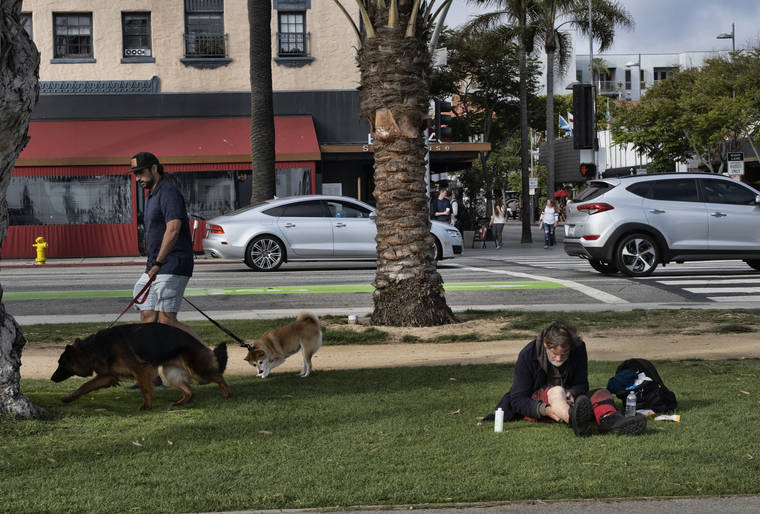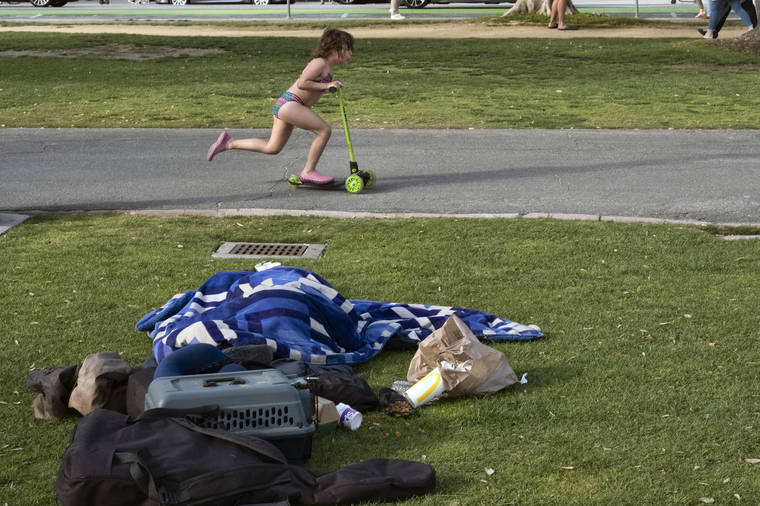LOS ANGELES — The number of homeless people counted across Los Angeles County jumped 12% over the past year to nearly 59,000, with more young and old people and families on the streets, officials said Tuesday.
The majority of the homeless people were found within the city of Los Angeles, which saw a 16% increase to 36,300, the Los Angeles Homeless Services Authority said while presenting January’s annual count to the county Board of Supervisors.
The previous tally found a slight decrease in the homeless population.
Two years ago, voters passed a tax hike and housing bond to make massive investments to help solve the homeless crisis.
Officials said Tuesday the same people have not remained on the streets.
The Los Angeles Homeless Services Authority, a county agency, said it helped 21,631 people move into permanent housing during 2018 — a pace that could rapidly end homelessness if economic pressures had not pushed thousands more into the streets.
About a quarter of the people became homeless for the first time in the past year, and about half of those cited economic hardship as the primary cause, the authority said.
To catch up, cities need to overcome resistance to the placement of housing and shelters, officials said.
Supervisor Janice Hahn called the numbers “disheartening.”
“Even though our data shows we are housing more people than ever, it is hard to be optimistic when that progress is overwhelmed by the number of people falling into homelessness,” Hahn said.
The Los Angeles County numbers mirror similar point-in-time tallies across California, as state officials struggle to address a lack of affordable housing. In addition, officials said, wages among lower income people have not kept up with the rising cost of living.
The count found a 24% increase in homeless youth, defined as people under 25, and a 7% jump in people 62 or older.
Officials estimate about 29% of people experiencing homelessness in L.A. County are mentally ill or coping with substance abuse problems.
About two-thirds of all people on the streets are male, just under one-third are female, and about 2% identify as transgender or gender non-conforming.
———
— Follow Weber at https://twitter.com/WeberCM



